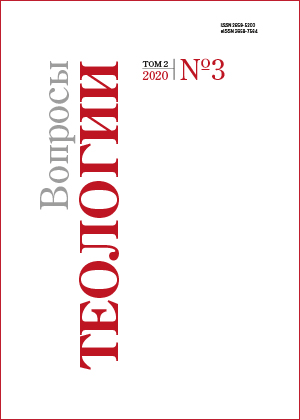Fundamentalism as problem of identity: Social psychological observations in theological perspective
DOI:
https://doi.org/10.21638/spbu28.2020.304Abstract
The article analyses the so-called religious and non-religious fundamentalism. From an empirical perspective, fundamentalism appears to be a constant phenomenon of modern life. The author claims that the principle possibility of fundamentalism has its roots in the sociocultural structures of Modernity. Of course, fundamentalist positions do not emerge necessarily, but they are inscribed in these structures as a permanent option. In the field of identity construction, the relation between fundamentalism and modern life can be explored especially well. This is because under modern conditions identity formation processes have not only found new opportunities, but also risky challenges. Herein lays a significant motive for fundamentalist identity constructions. To shed some light on this problematic complex, the author refers to insights of classical social psychology (Dilthey, Mead, Hofstätter, Goffman, Krappmann) and applies them to the problem here at stake. Because of the close nexus between fundamentalism and religion, religion plays an important role in the author’s argument. Reasoning from a protestant theological point of view, the author is not limited to a descriptive approach, but also offers a normative critique.
Keywords:
religion, theology, fundamentalism, Modernity, anti-modernism, identity construction, social role, secularization, social functional differentiation
Downloads
References
References
Downloads
Published
Issue
Section
License
Articles of "Issues of Theology" are open access distributed under the terms of the License Agreement with Saint Petersburg State University, which permits to the authors unrestricted distribution and self-archiving free of charge.




